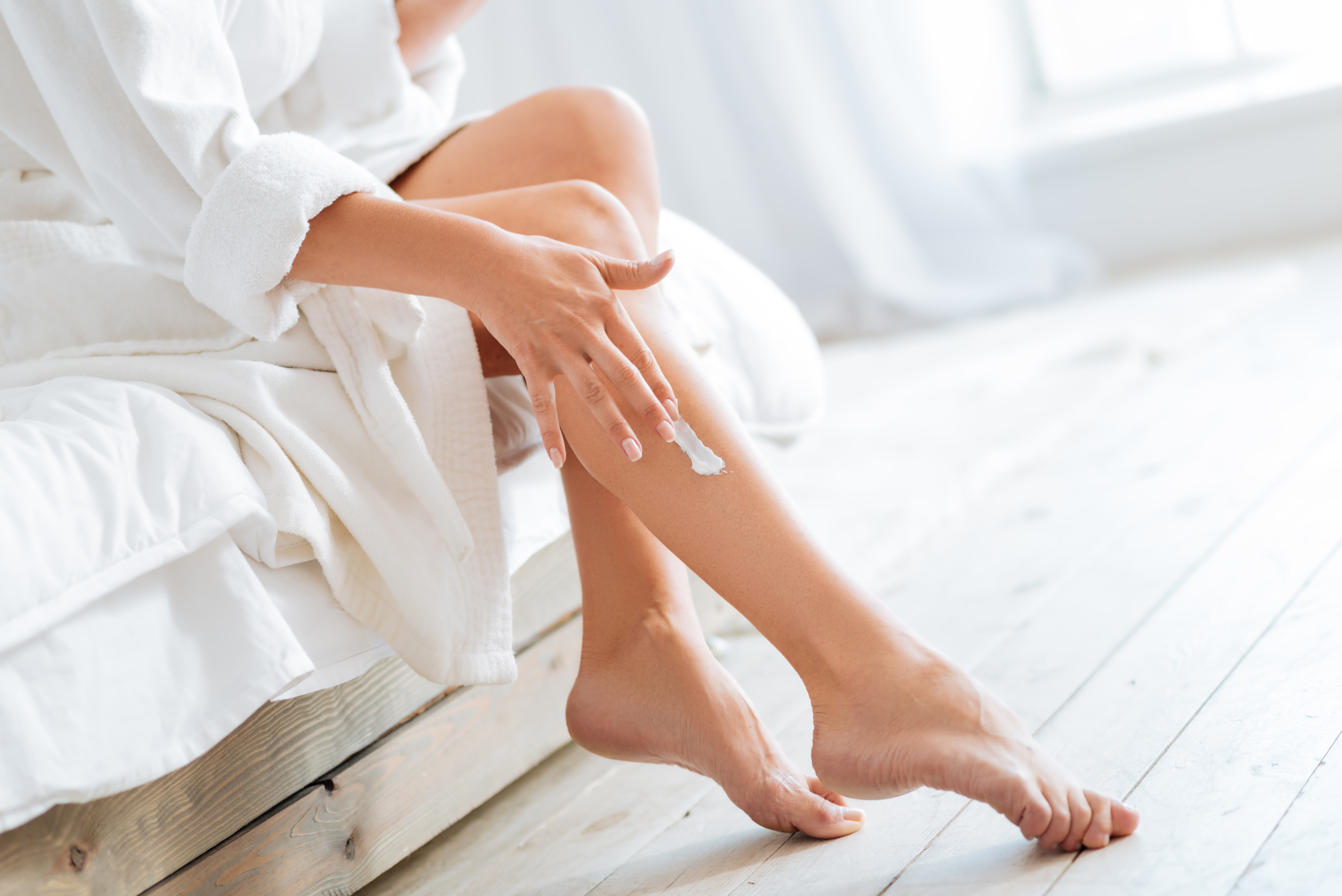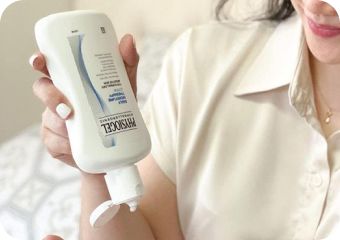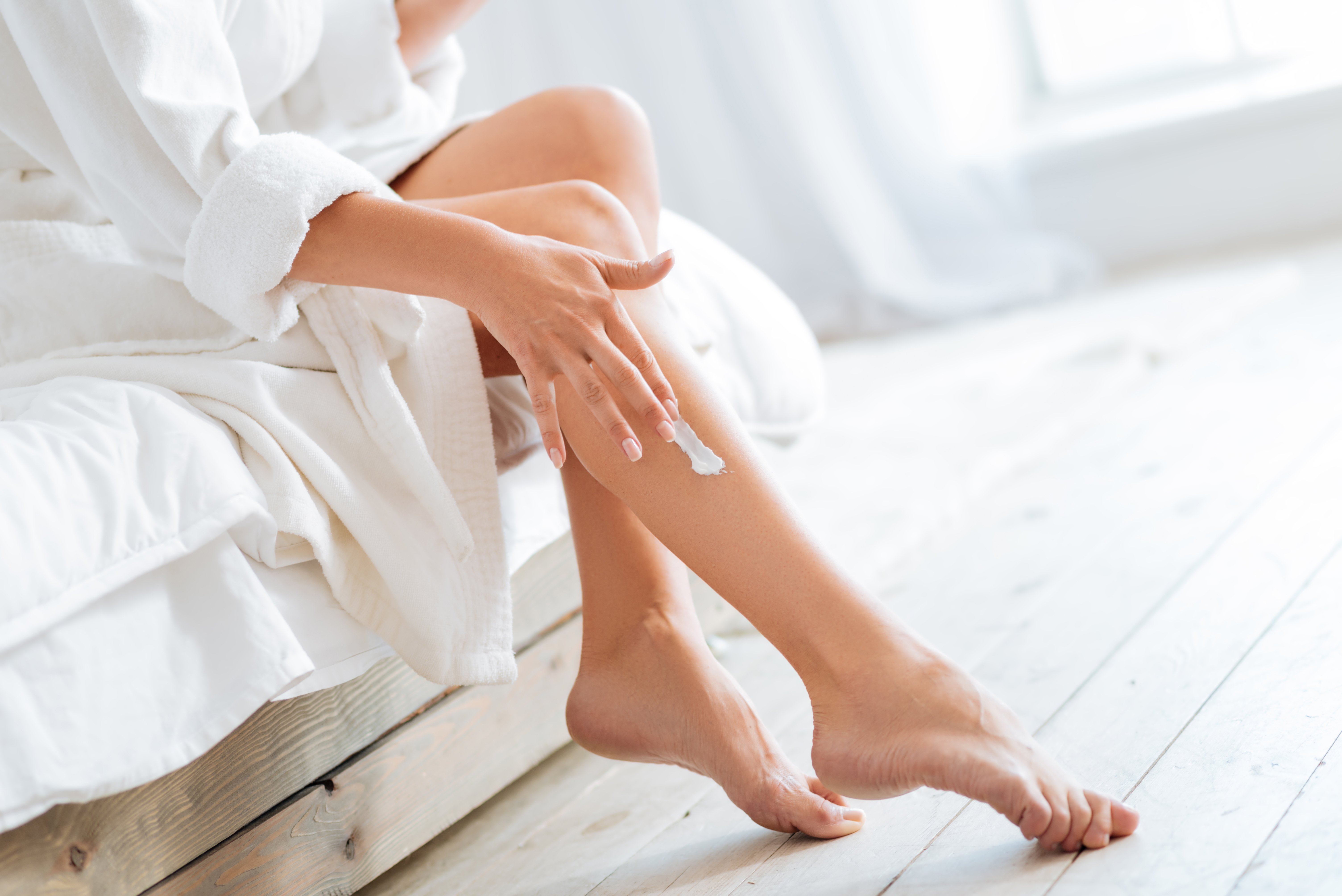If you are someone who suffers from dry and cracked skin, chances are you may have atopic
dermatitis, also known as eczema. This skin condition commonly causes itching and interrupts the protective barrier
and healthy functions of the skin. 1 Eczema can also be long-lasting and can periodically trigger flare
up episodes. More so, anyone can experience it at any age, but it can more commonly occur in children.
2
Although these symptoms of atopic dermatitis eczema, may differ from person to person, this skin condition is also
directly related to a person’s genetic makeup which affects the skin’s natural ability to provide protection. This,
in turn, lets environmental factors, pollutants, and other irritants penetrate and affect the skin. That is why it
is important to note that keeping your skin healthy will help lock in the moisture inside the skin barrier and help
to protect you from external irritants like bacteria and other allergens. 2
Controlling Eczema At Home
People with eczema live with a damaged skin barrier, which makes it harder for the outermost layer of the skin to retain moisture. Based on existing research, many dermatologists would mostly always recommend keeping your skin properly moisturized as it is one of the most important and effective ways to manage the skin condition and prevent it from getting worse.3

Things To Remember When Moisturizing
Because factors such as wind, humidity in the air, colder temperatures, harsh soaps, and prolonged exposure to water
all contribute to dry skin and can eventually lead to eczema, it is important to understand how often and when one
should moisturize. 3
● Moisturizing should be done after application of prescription topical medications.
● A thick layer of moisturizer should be applied all over your skin and completed within three minutes of bathing
for skin barrier protection and skin moisture retention.
● Use fragrance-free moisturizers as it is the safest and least irritating.
● Clean implements are better used when removing the moisturizer from the container rather than your hands to
prevent contamination.
● Make it a point to soften the product between your hands before application and avoid rubbing down or stroking the
moisturizer harshly in circles on your skin.
● Allow the moisturizer to be absorbed within the skin in a few minutes and do not remove its excess even if it
feels “heavy” on your skin.
● Practice moisturizing your hands every time you wash them or come into contact with water.3

Lotions, Creams, and Ointments
Any kind of skin moisturizer will differ in terms of how much oil or water these substances contain. This uniqueness gives a variety of textures that, to some degree, will directly impact the product’s intended purpose. Simply put, your decision to choose which skin treatment for eczema among lotions, creams, ointments, or gels will solely depend on the type of eczema and the area of skin you want to address. This is because one may not be a suitable option to address your every skin care3need. Moreover, since some of them have heavier textures in comparison to others, a person’s overall skin type is also a matter of concern and consideration.4
Lotions
These substances contain more water, making their consistency much thinner. Because they are usually formulated with lightweight ingredients, they do not normally leave sticky or heavy residues that clog pores.4 Being primarily made up of water, they evaporate quite quickly which will constitute more frequent product reapplication. 5
Always go for those that are noncomedogenic, but if your lotion irritates your skin, it could as well be due to the fact that they contain more water, thus requiring more preservatives.5 Otherwise, for best absorption, it is recommended to apply the product within five minutes of bathing on slightly damp skin to help it retain skin moisture, making it less likely to lead to chronic dry, itchy skin, which can cause eczema to flare or get worse.5
Creams
They are generally thicker than their lotion counterparts because they are formulated with more oil. Usually, they are made up of equal parts oil and water and contain other heavier ingredients like lanolin and shea butter. Medicated creams, for example, can be used to treat eczema as short-course applications will usually help clear flare-ups.6
They absorb into the skin less quickly and form a filmy barrier between the skin and other external factors, which better helps the moisture from escaping. Creams are also helpful on rough areas of the skin like the elbows, heels, or dry hands. If you want something that also offers a good level of hydration without the greasy feel of other oil-based products, creams may be a better alternative for you.6, 7
Ointments
If you thought creams were already thick, ointments are actually made to be thicker and greasier. Their main ingredient would either be mineral oil or petroleum jelly. Ointments are recommended for use in dry skin, because of their ability to keep the moisture in while not being well absorbed into the skin.8
That is why this substance is best for people who experience the main symptoms of eczema, such as inflammation and itchiness because of its anti-inflammatory properties. Because of this characteristic, ointments make it easy to seal skin moisture longer than other moisturizers. Overall, ointments are to be preferred if you:
● Need to treat extremely dry skin conditions
● Require greater penetration of the active ingredient in topical medications
● Want greater and longer-lasting moisturization
The path to understanding what treatment your skin needs, especially if you suffer from
atopic dermatitis or eczema may take time. For many people, it may take a certain number of trials and errors to
discover the right kind of product and moisturizer that can best accommodate your skin condition and alleviate your
eczema-related flare-ups. If you have already exhausted yourself from trying out a range of products, Physiogel
Calming Relief may just be what you are looking for. Formulated with BioMimic TechnologyTM, Physiogel
works naturally to mimic your skin barrier to soothe and strengthen your skin. It also helps repair your skin
barrier to keep it strong and protected so you do not have to suffer from eczema-related
flare-ups.10
RE-LGH-PYSG (ALL)-ART-PUC-0061-V0
References:
1 Ncbi.nlm.nih.gov. 2022. Skin care for eczema. [online] Available at:
<https://www.ncbi.nlm.nih.gov/books/NBK424900/> [Accessed 6 July 2022].
2 Mayo Clinic. 2022. Atopic dermatitis (eczema) - Symptoms and causes. [online] Available at:
<https://www.mayoclinic.org/diseases-conditions/atopic-dermatitis-eczema/symptoms-causes/syc-20353273#:~:text=Atopic%20dermatitis%20(eczema)%20is%20a,been%20found%20for%20atopic%20dermatitis.>
[Accessed 6 July 2022].
3 National Eczema Association. 2022. Controlling Eczema by Moisturizing. [online] Available at:
<https://nationaleczema.org/eczema/treatment/moisturizing/#:~:text=Keeping%20your%20skin's%20moisture%20intact,stratum%20corneum%20or%20skin%20barrier.>
[Accessed 6 July 2022].
4 Healthline. 2022. How to Tell the Difference Between Ointment, Cream, Lotion, and Gel. [online] Available at:
<https://www.healthline.com/health/ointment-vs-cream#Ointment,-cream,-lotion,-or-gel?> [Accessed 6 July
2022].
5 Filabe of Switzerland. 2022. How are creams absorbed by the skin? [online] Available at:
<https://www.filabe.ch/en/blog/how-are-creams-absorbed-skin> [Accessed 8 September 2022].
6 Water's Edge Dermatology. 2022. Lotion vs. Cream vs. Ointment: Which to Use When | Water's Edge Dermatology.
[online]
Available at: <https://www.wederm.com/2021/04/26/lotion-vs-cream-vs-ointment-which-to-use-when/> [Accessed
7 July 2022].
8 Verywell Health. 2022. The 8 Best Lotions for Eczema of 2022. [online] Available at:
<https://www.verywellhealth.com/best-lotions-for-eczema-1069262> [Accessed 6 July 2022].
9 eMedicineHealth. 2022. What Are Ointments Used For? Types & Examples. [online] Available at:
<https://www.emedicinehealth.com/what_are_ointments_used_for/article_em.htm> [Accessed 6 July 2022].
10 Patient Info 2022. Topical Steroids for Eczema [online] Available at:
<https://patient.info/skin-conditions/atopic-eczema/topical-steroids-for-eczema> [Accessed 6 July
2022].
11 A randomized, single centre, single-blind, parallel, home use, cosmetic study to investigate the safety,
efficacy and acceptability of W0154 Cream in subjects with moderately dry to very dry skin and signs and
symptoms of redness, irritation and inflammation, 2012, Dr. Suzana Louth [Data on file]


